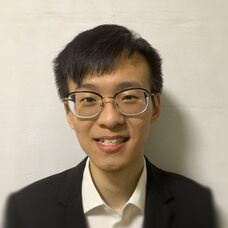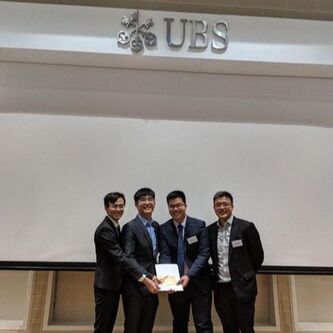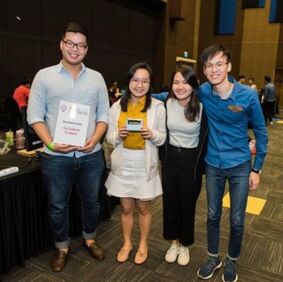- Home
- WHO WE ARE
-
WHAT WE DO
- Overview
-
In Singapore
>
-
Internationally
>
-
Global Health and Development
>
- Independent Childcare Provider Training Programme in Vietnam
- Strengthening the Child Development Nexus in the Phiilippines
- Bridging the Fortification Gap in the Philippines
- Program AKSELERASI
- Play Labs
- AVPN Healthcare Pooled Fund
- Regional Early Childhood Development Research
- Stunting Centre of Excellence
- The UBS Accelerate Collective
- Past Programmes Supported >
-
Climate Change Action
>
- DeiMeas (Golden Soil) Initiative
- Climate-Smart Rice Cultivation Initiative in Northern Vietnam
- Natural Climate Solutions Technical Assistance Facility
- Southeast Asia Framework for Ocean Action in Mitigation
- Landscape Monitoring Initiative
- Southeast Asia Climate Adaptation Research
- Garden To Forest Programme
- UBS Climate Collective
- The APC Climate Collective
- Past Programmes Supported >
- Scholarships >
-
Global Health and Development
>
- OUR IMPACT
- PUBLICATIONS & NEWSROOM
- Contact Us
Putting theories into practice
Loh Yu Jin
|
Loh Yu Jin is a Business Analytics and Fintech undergraduate in the School of Information Systems at the Singapore Management University. He has also been a Quantedge Foundation Scholar since 2017.
Yu Jin was a member of the winning team in the UBS Group Chief Operation Office Case Challenge 2019. He hopes to embark on a career in the financial services or the consulting industry when he graduates. |
What are your career goals and how do you plan to achieve them?With my domain knowledge in finance as well as information technology, I hope to develop solutions that reduce inefficiency in business models.
Understanding the industry is very important. As such, I took part in various case competitions, hackathons and coding challenges, as well as networking sessions, to get to know the requirements for future job opportunities. I believe that these experiences are crucial in discovering what I want and opening up a path to work towards my dreams. While having good results is vital, this alone is not everything. In today’s globalised world, fostering good relationships and being able to deliver and understand messages well are equally important. Focusing solely on hard skills is a thing of the past and this is an area I should work on. "Understanding the industry is very important. As such, I took part in various case competitions, hackathons and coding challenges, as well as networking sessions, to get to know the requirements for future job opportunities. I believe that these experiences are crucial in discovering what I want and opening up a path to work towards my dreams. "
|
You beat 50 teams to clinch the first prize in the UBS Group Chief Operation Officer Case Challenge 2019. What was your role in the team and why did you think your team won? Compared to the school project, the case challenge demanded much more in a shorter time but also assured us that whatever was taught in class was relevant in the outside world. We are thankful to be able to apply what we have learnt to solve UBS’ business problem.
|
You seem to spend a fair amount of time in out-of-class activities. Besides the UBS Case Challenge, you have completed coding courses and participated in the Bosch Ville 2018 Hackathon. Tell us more about these activities and what motivates you to participate in them.
|
What advice and tips do you have for a new QF scholar on how to navigate the first semester in SMU?I recall how I initially struggled when transiting from National Service to student life at university. Adapting to the fast-paced learning environment in SMU was not easy. For new QF scholars, here are some tips:
|
*This interview has been edited for length and clarity.
- Home
- WHO WE ARE
-
WHAT WE DO
- Overview
-
In Singapore
>
-
Internationally
>
-
Global Health and Development
>
- Independent Childcare Provider Training Programme in Vietnam
- Strengthening the Child Development Nexus in the Phiilippines
- Bridging the Fortification Gap in the Philippines
- Program AKSELERASI
- Play Labs
- AVPN Healthcare Pooled Fund
- Regional Early Childhood Development Research
- Stunting Centre of Excellence
- The UBS Accelerate Collective
- Past Programmes Supported >
-
Climate Change Action
>
- DeiMeas (Golden Soil) Initiative
- Climate-Smart Rice Cultivation Initiative in Northern Vietnam
- Natural Climate Solutions Technical Assistance Facility
- Southeast Asia Framework for Ocean Action in Mitigation
- Landscape Monitoring Initiative
- Southeast Asia Climate Adaptation Research
- Garden To Forest Programme
- UBS Climate Collective
- The APC Climate Collective
- Past Programmes Supported >
- Scholarships >
-
Global Health and Development
>
- OUR IMPACT
- PUBLICATIONS & NEWSROOM
- Contact Us



